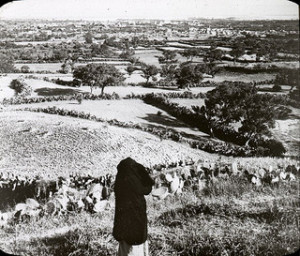Change the language, change the story? Part Two

In today’s post, Erin Wilson continues her reflections on shifting the way we think and talk about conflict and peace.
In part one, I outlined some ways in which contemporary discussion on peace and conflict analysis is affected and arguably limited by thinking in narrow either/or terms and the language we use to talk about conflict. Here I want to offer a few possibilities for rethinking some of these issues.
Duncan Bell’s distinction between memory and myth is a useful way of distinguishing between recent and historical conflicts.[1] For Bell, the concept of memory should not be used loosely to refer to collective representations of history. There are far too many different aspects involved here. Recalling a trauma that took place three generations ago is very different from trying to come to terms with recent events. This is why Bell says the concept of memory should be limited to the experiences of people who directly witnessed and shared the events in question. Memory, he argues, is always anchored in common experience, such as the South African apartheid and the truth and reconciliation commissions that followed, or the gacaca trials in Rwanda. These instances are very different from dealing with the memory of long past events. For Bell, recalling such events is not an issue of memory but one of myth: a process of establishing a common set of assumptions about what took place in the past and how the respective events are to be remembered. This process is shaped by numerous factors, from media representation to school curricula and linguistic conventions.
It’s important to clarify that by using the term “myth” Bell is not saying that these historical events did not happen. But in a sense whether they happened or not becomes less important. It is how they are remembered and memorialized that is important and that shapes contemporary events.
In most conflict situations, I think myths and memories become intertwined. Past myths about historical events become the backdrop (or in some cases even the justification for) contemporary abuses. But this means that in dealing with the contemporary abuses we must also think about the historical events.
The problem with many conflict resolution strategies is that often, not always, but often, they only deal with the memories around contemporary events. They try to alter the way recent atrocities and injustices are remembered so that the indignity suffered by the victims is acknowledged and they can feel that their cries for justice have been heard. But this is only part of the problem. We must also consider the historical myths that go beyond the immediate conflict and form the deep culture, to use Johan Galtung’s phrase,[2] from which symbols, narratives and metaphors are drawn to make sense of contemporary events.
Consider the present ceasefire agreement. Israel’s terms for the ceasefire included the end of all hostile fire from Gaza and a commitment by the International Community to prevent Hamas from re-arming. Hamas for their part wanted an end to the blockade in Gaza and the targeted killings of Hamas leaders by Israel.[3] But these terms only deal with the current grievances. They do not deal with what has gone before, with the decades (some might even say centuries or millennia) of hostility, inequality, misrepresentations and injustices that provide the framework against which the most recent conflict broke out. How events are remembered and how the “other” is depicted across all parties to the conflict (not just Israel and Palestine, but the United States, Egypt, Iran, the UN and so on) must change if there is to be respect and mutual desire and political will for finding a long term political solution. But we must also rethink the often implicit, unacknowledged historical narratives that lie behind the immediate Israel/Palestine conflict that are contributing to its seeming intractability. Without dealing with these historical traumas, there is little hope that any kind of ceasefire will be long lasting.
One way forward may be for all parties to give up on trying to be “right”, trying to win or trying to establish the “truth”. Either/or thinking of right and wrong, true and false, victim and perpetrator needs to be abandoned – reconciliation, restoration and the future need to be prioritized. For that to happen, all parties need to recognize their own guilt, alongside their own vulnerability and injury.
Exactly how that can happen, however, remains one of the key challenges for peace scholars and policy makers. Perhaps a useful place to start is challenging dominant perceptions of how conflict is understood and characterized within scholarship and in the media. Conflict should not be presented as a zero-sum game, where one side must “win” at the expense of the other. Conflict is a loss for all parties – each loses people, material goods, infrastructure and numerous other assets that take a long time to reestablish in the aftermath of violence. Equally, peace should not simply be characterized as the absence of violence, but as the establishment of safety and security for all concerned, the removal of structural injustices, a balancing of power relations and enabling full human flourishing. In shifting these narrow views of conflict and peace, we may hopefully open up more avenues to conflict resolution and thereby reduce the intractability of conflicts, perhaps even the seemingly unresolvable Middle East.
Erin Wilson is Director of the Centre for Religion, Conflict and the Public Domain, Faculty of Theology and Religious Studies, University of Groningen
[1] I am grateful to Roland Bleiker for his insights on the work of Duncan Bell.
[2] Galtung, J. 1996. Peace by Peaceful Means. Sage: Thousand Oaks

